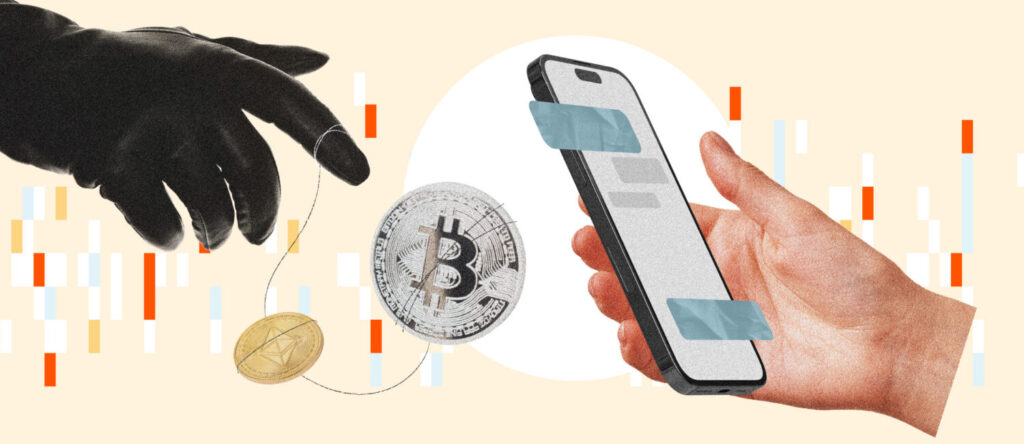-
A company operating from Myanmar stands implicated in a large-scale fraudulent scheme.
-
Authorities tracked ransom payments made in Tether tokens to a facility known as KK Park, situated in the eastern segment of Myanmar.
-
Tether has proactively engaged with regulatory bodies across the globe and immobilized $276 million tied to “pig butchering”-related crimes.
A company operating from Myanmar stands implicated in a large-scale fraudulent scheme, a stark reminder of the potential perils within the cryptocurrency domain. This entity allegedly orchestrated a deceitful operation over two years, tricking individuals into a staggering $100 million. The Myanmar crypto scam has shaken the core of many investors, raising questions concerning the safety of crypto wallets and blockchain networks. This disclosure emerged from the concerted efforts of Chainalysis, a premier crypto analytics organization, and the International Justice Mission, a vigilant anti-slavery entity based in the United States.
Chainalysis has identified Tether, a titan in global cryptocurrency platforms, as a pivotal player in these so-called “pig butchering” scams. Astonishingly, authorities tracked ransom payments made in USDT tokens to a facility known as KK Park, situated in the eastern segment of Myanmar. These transactions reportedly originated in the desperate and helpless families of trafficked labourers, who faced the harrowing predicament of having to procure their loved ones’ freedom.
The Myanmar Crypto Scam: A Cautionary Tale of Tether and Blockchain Vulnerabilities
These findings are significant due to the immense sum siphoned by malevolent individuals and reveal the complex mechanisms that facilitate such nefarious activities. Eric Heintz, a seasoned global analyst at the International Justice Mission, encapsulated the situation: “While the world has steadily acknowledged blockchain’s vulnerability to scamming, this incident marks a breakthrough in localizing the scam to a tangible site and an identifiable compound.”
An in-depth analysis revealed that a Chinese company channelled over $100 million in cryptocurrency into a mere duo of digital wallets. According to Jackie Koven, Chainalysis’ cyber threat intelligence lead, this is a concrete example of how virtual assets can empower villains to expand a surreptitious black market. Criminals are using Tether’s tokens as a tool to exchange for US dollars and as an illicit conduit for international financial transactions.
Also, Read Tether unveils Bitcoin mining software to increase capacity.
USDT’s Dark Turn: facilitating more than just currency exchange
However, this investigative venture chose not to publicly identify the Chinese company to protect the privacy of Chinese nationals involved in human trafficking controversies. Further probing indicated that KK Park, located near the precarious Thailand-Myanmar border, harbours potentially thousands of coerced labourers, with a significant number recruited into the sordid world of online scam operations. KK Park’s murky ownership and the anonymity of its operators complicate matters, leaving many questions unanswered.
KK Park’s disreputable deeds are poised to escalate scrutiny on Tether. With an asset management portfolio nearing the $100 billion threshold, the pressure is mounting for Tether to staunch the misuse of its in-house currency for illegal activities. A recent advisory from the UN’s Office on Drugs and Crime underscored USDT’s emergence as a favoured transaction instrument amongst launderers and swindlers in Southeast Asia.
In response, it has proactively engaged with regulatory bodies across the globe and immobilized $276 million tied to “pig butchering”-related crimes. The platform articulates a stance of professional pride in its ongoing collaboration with law enforcement agencies.
The most contentious $100 million tracing back to KK Park manifested itself in the ledger of a company that transacted on the Tron network, lauded for its nominal transaction fees. In such deceptive practices, Koven sheds light on the burgeoning use of Tether and Tron. This alliance provides Tether price stability and Tron with affordable transaction costs, creating a lucrative avenue for scammers.

Tether collaborates with global law enforcement agencies by implementing proactive and reactive measures to prevent and address potential criminal activities involving its token. Here are some of Tether’s ways to work with law enforcement:
Tether employs strict Know Your Customer (KYC) and Anti-Money Laundering (AML) procedures to verify users on their platform, reducing the risk of illicit activities.
USDT utilizes continuous monitoring of transactions to identify and flag suspicious activities. Tether uses advanced technologies to track the flow of funds and detect patterns that may indicate money laundering or other criminal activity.
Freezing Assets: Tether can freeze tokens when there is evidence of wrongdoing, such as theft or scam operations. They have exercised this power several times to assist law enforcement with their investigations.
Law Enforcement Requests: Tether’s legal and compliance teams are on standby to respond to law enforcement agencies’ requests for information as soon as possible. This involves providing data that can assist in tracing illegal transactions and identifying the individuals involved.
Education and Training: Tether may also partner with law enforcement agencies to provide training and insights into the operation of cryptocurrencies and digital wallets, which can help investigate crypto-related crimes.
Global Partnerships: Through partnerships with regulatory authorities and other stakeholders worldwide, Tether aims to foster a more secure and transparent environment for digital currency transactions.
Also, Read Yellow Card Partners with Tether to target African Youth.
The stablecoin provider aims to ensure that its token is used responsibly and not to finance illegal activities by maintaining these collaborative relationships. The company maintains a stance of cooperation and openness with law enforcement to contribute to the broader effort to combat crypto-related crimes.
With their labyrinthine transaction structures and blistering speeds, cryptocurrencies present law enforcement with unprecedented challenges. The sophistication and velocity of crypto transactions mean authorities often play catch-up with the elusive “pig butchering” scammers, who increasingly turn to digital currencies for their illicit exchanges.
The case unearths the fundamental need for heightened blockchain security measures and the pressing danger that crypto scammers pose to unsuspecting digital wallet holders. As the crypto landscape continues to flourish and integrate into the financial fabric of society, the lessons from the Myanmar Crypto Scam loom large, emphasizing the critical importance of vigilance and informed caution in navigating the blockchain economy.
